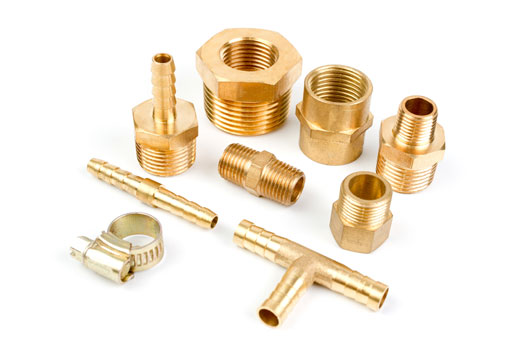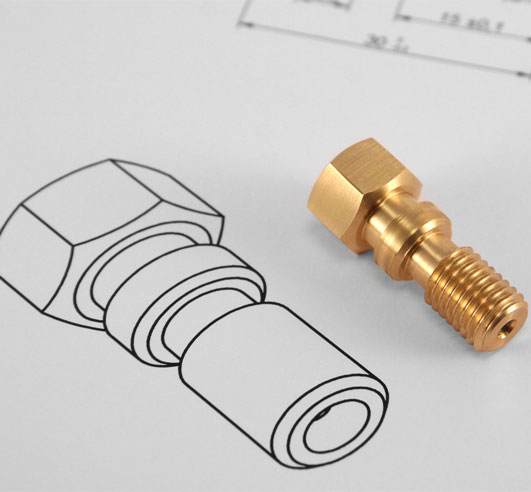Brass is a versatile, durable, and elegant material that has been used throughout history in various industries. It's no wonder that today, CNC machined brass forged parts are increasingly popular in various realms, such as automotive, electronics, and aerospace. As a result, it's crucial for professionals and enthusiasts alike to stay informed about the pricing and industry trends. In this comprehensive blog post, we'll delve into the world of CNC machined brass forged parts prices and discuss different aspects that make these components essential in various sectors.
CNC Machining Brass: A Brief Introduction
Brass is an alloy of copper and zinc, with copper being the primary component. The material is highly corrosion-resistant, making it suitable for use in various industries where durability and strength are crucial. By employing CNC machining, highly precise components can be created with tight tolerances and intricate designs.
CNC machining, or Computer Numerical Control machining, is a manufacturing process that uses computerized controls to operate and manipulate machine tools. This process allows for the production of complex parts with high levels of accuracy, consistency, and efficiency.
Factors Influencing the Price of CNC Machined Brass Forged Parts
When determining the cost of CNC machined brass forged parts, several factors come into play. Some of these factors include:
1. Material Cost: The cost of brass itself is one of the most significant factors contributing to the price of these parts. The copper and zinc prices vary based on global market trends and availability, making it essential to consider these fluctuations while estimating the cost of production.
2. Design Complexity: Complex designs that require high levels of precision and intricate details will result in higher production costs. This is because more time and effort are needed to produce such components, increasing the overall costs.
3. Machine Time: The time taken by the CNC machine to produce a part will directly affect the cost. Parts that require longer processing times and more CNC machine setup will result in higher production costs.
4. Post-Processing: After the machining process, some parts may require additional finishing or other post-processing steps. These additional steps, such as polishing, plating, or surface coating, will increase the overall cost of production.
5. Demand and Supply: The demand for brass forged parts and the availability of these components in the market might affect the price. Seasonal fluctuations and other external factors may also lead to changes in the cost of brass forged parts.
6. Tooling Cost: The life of the CNC tools used during production is another critical factor in determining the price of the parts. As tools wear out, they need to be replaced, which contributes to the cost of the parts.
Methods of Reducing the Cost of CNC Machined Brass Forged Parts
To stay competitive in the market and minimize the costs associated with manufacturing CNC machined brass forged parts, you can apply the following strategies:
1. Optimize Design: Reviewing and optimizing designs can significantly reduce production costs. Simplifying the design, reducing the intricacy of details, and cutting down on unnecessary features can save money.
2. Streamline Production Processes: To reduce machine time and minimize tooling costs, consider streamlining the production process by automating repetitive tasks and reducing labor-intensive processes.
3. Capability Expansion: By investing in new technology, machinery, and skilled workforce expansion, you can not only increase productivity but also produce more cost-efficient parts.
4. Material Selection: Choose the most economical brass alloy that provides the desired characteristics and performance for the intended application.
5. Volume Ordering: Order larger quantities of parts, as this can often lead to economies of scale that will reduce the cost per part.
6. Locate a Reliable Supplier: Engage in business with suppliers who can offer competitive pricing and consistent quality, helping to reduce costs and minimize supply chain risk.
Market Trends Affecting the Price of Brass Forged Parts
CNC machined brass forged parts are experiencing a surge in demand in various industries due to their functional and aesthetic qualities. Furthermore, a focus on sustainability and green manufacturing has led to a growing preference for brass components. As the global economy recovers from the COVID-19 pandemic, the demand for these parts is likely to increase, further driving the prices of brass and CNC machining services.
Looking into the future, businesses and manufacturers must stay ahead of the curve by investing in technologies such as automation, artificial intelligence, and advanced manufacturing strategies to reduce production costs and maintain competitiveness in the market.
Every aspect of the CNC machined brass forged parts price is vital – from material costs to market trends – to make informed decisions regarding production, inventory management, and pricing strategies. By understanding these influential factors, manufacturers and users alike can make smart choices that contribute to long-term success in their respective industries.
cnc machined brass forged parts price







